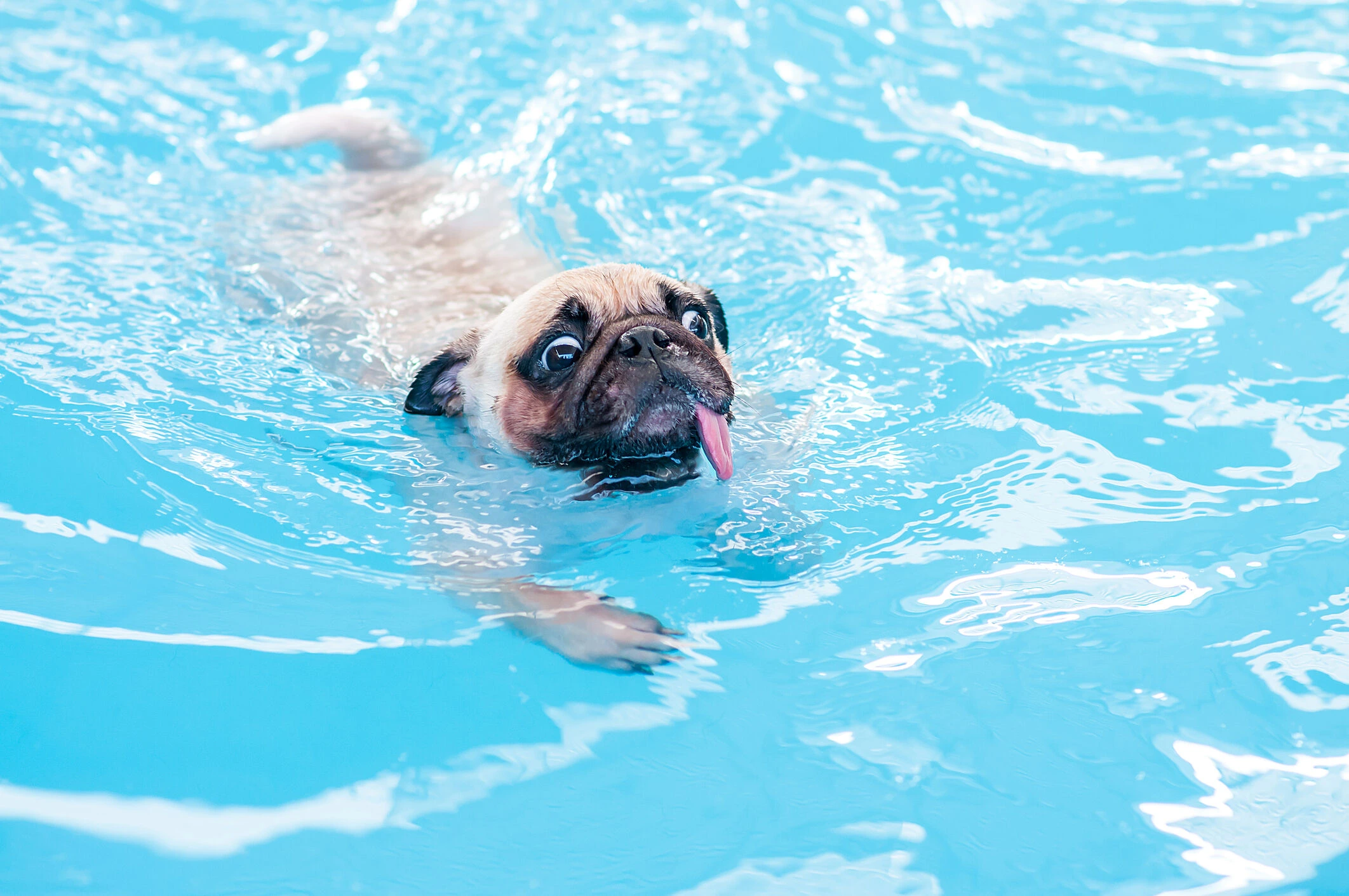Pugs are beloved for their unique appearance and playful personalities, but many owners have noticed an unpleasant odor coming from their furry friends. This odor can be a cause for concern and discomfort, both for the pug and their owners. In this article, we’ll explore the common reasons why pugs may have a bad smell and how to manage it effectively.
1. Wrinkles and Skin Fold Issues
Pugs are known for their distinctive wrinkles, which can trap moisture, dirt, and bacteria.
-
Moisture Accumulation: The folds of skin on a pug's face can retain moisture, especially after eating or drinking. This can create a breeding ground for bacteria and fungi, leading to a foul smell.
-
Infections: If not cleaned regularly, the skin folds can become irritated or infected, resulting in a strong odor. Conditions such as pyoderma (a bacterial skin infection) are common in pugs due to their skin structure.
Solution: Regularly clean the wrinkles with a damp cloth and a gentle cleanser to remove debris and moisture. Ensure the area is thoroughly dried afterward.
2. Oral Health Problems
Dental issues are prevalent in pugs, contributing significantly to bad odors.
-
Tartar Buildup: Pugs are prone to dental disease due to their small mouths and crowded teeth. Tartar and plaque buildup can lead to gingivitis and bad breath.
-
Periodontal Disease: Advanced dental issues can cause significant odor as bacteria infect the gums and surrounding tissues.
Solution: Establish a regular dental care routine, including brushing your pug's teeth, providing dental chews, and scheduling regular veterinary dental cleanings.
3. Ear Infections
Pugs have floppy ears that can trap moisture and debris, making them susceptible to ear infections.
- Signs of Infection: If a pug has an ear infection, they may have a strong odor coming from their ears, along with other signs like scratching, redness, or discharge.
Solution: Regularly check and clean your pug’s ears using a vet-recommended ear cleaner. If you suspect an infection, consult your veterinarian for proper treatment.
4. Diet and Digestive Issues
Diet plays a significant role in a pug’s overall health, including their smell.
-
Food Quality: Low-quality dog food or sudden dietary changes can lead to digestive upset, causing gas and odor.
-
Allergies and Sensitivities: Some pugs may have food allergies or intolerances that can result in skin irritations, excessive gas, and a bad odor.
Solution: Feed your pug a high-quality diet suitable for their needs. If you notice persistent digestive issues, consult your veterinarian for dietary recommendations or potential food allergies.
5. Lack of Bathing and Grooming
Pugs require regular grooming and bathing to keep them clean and odor-free.
- Dirt and Oils: Pugs can accumulate dirt, oils, and allergens on their skin and fur, contributing to an unpleasant smell.
Solution: Bathe your pug every few weeks or as needed, using a gentle dog shampoo. Regular grooming helps remove loose hair and debris.
6. Anal Gland Issues
Pugs can also have problems with their anal glands, which may lead to a foul odor.
- Impaction or Infection: If a pug’s anal glands become impacted or infected, they can produce a strong, unpleasant smell.
Solution: Monitor your pug for signs of anal gland issues, such as scooting or excessive licking of the rear end. Regular veterinary check-ups can help address these concerns before they become problematic.
7. Health Conditions
Underlying health issues can also contribute to a pug’s smell.
-
Hormonal Imbalances: Conditions such as hypothyroidism can lead to skin problems, which may result in odor.
-
Diabetes or Kidney Disease: These conditions can cause specific smells due to metabolic changes in the body.
Solution: Regular veterinary check-ups can help detect any health issues early. If you notice any unusual smells or changes in your pug’s behavior, consult your vet promptly.
Conclusion
While pugs are charming companions, they can be prone to odors due to their unique anatomy and health considerations. Understanding the reasons behind your pug's smell can help you take the necessary steps to keep them clean and healthy. Regular grooming, dental care, and veterinary check-ups can significantly reduce odors and enhance your pug’s quality of life.
Takeaway Tips
- Clean your pug's wrinkles regularly to prevent odor.
- Maintain a dental hygiene routine to combat bad breath.
- Monitor their diet and seek veterinary advice for any digestive issues.


